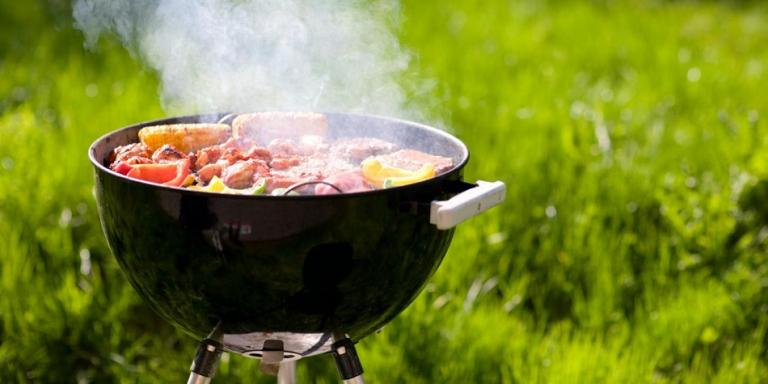Grilling can be a healthy way to enjoy food. But when meat, poultry, or fish are grilled at high temperatures, chemicals known as heterocyclic amines (HCAs) are produced. Research shows that these may pose a cancer risk.
But there’s no need to put away the grill! Follow these easy tips to help minimize risk.
Safe Grilling Tips
- Burn off any residue on the grill grates both before and after grilling by scrubbing it away with a stiff-bristled grill brush.
- Choose lean meat cuts and trim excess fat. Cook large cuts slowly and at a lower temperature.
- Use marinades. They can decrease HCA formation by more than 90 percent. Some of the ingredients in marinades even act as protective antioxidants.
How to Tell When Grilled Foods are Ready
Before removing food from the grill, measure its temperature by inserting a food thermometer into the thickest part. Make sure the thermometer’s not touching any bone, fat, or gristle.
FDA Safe Temperature Minimums
Here is a listing of minimum safe temperatures, as determined by the FDA.
| Food | Temperature |
|---|---|
| Chicken breasts and whole poultry | 165°F |
| Ground meat | 160°F |
| Fish | 145°F |
| Beef steaks and roasts | 145°F |
| Lamb steaks, ribs, or leg | 145°F |
| Pork | 145°F |

